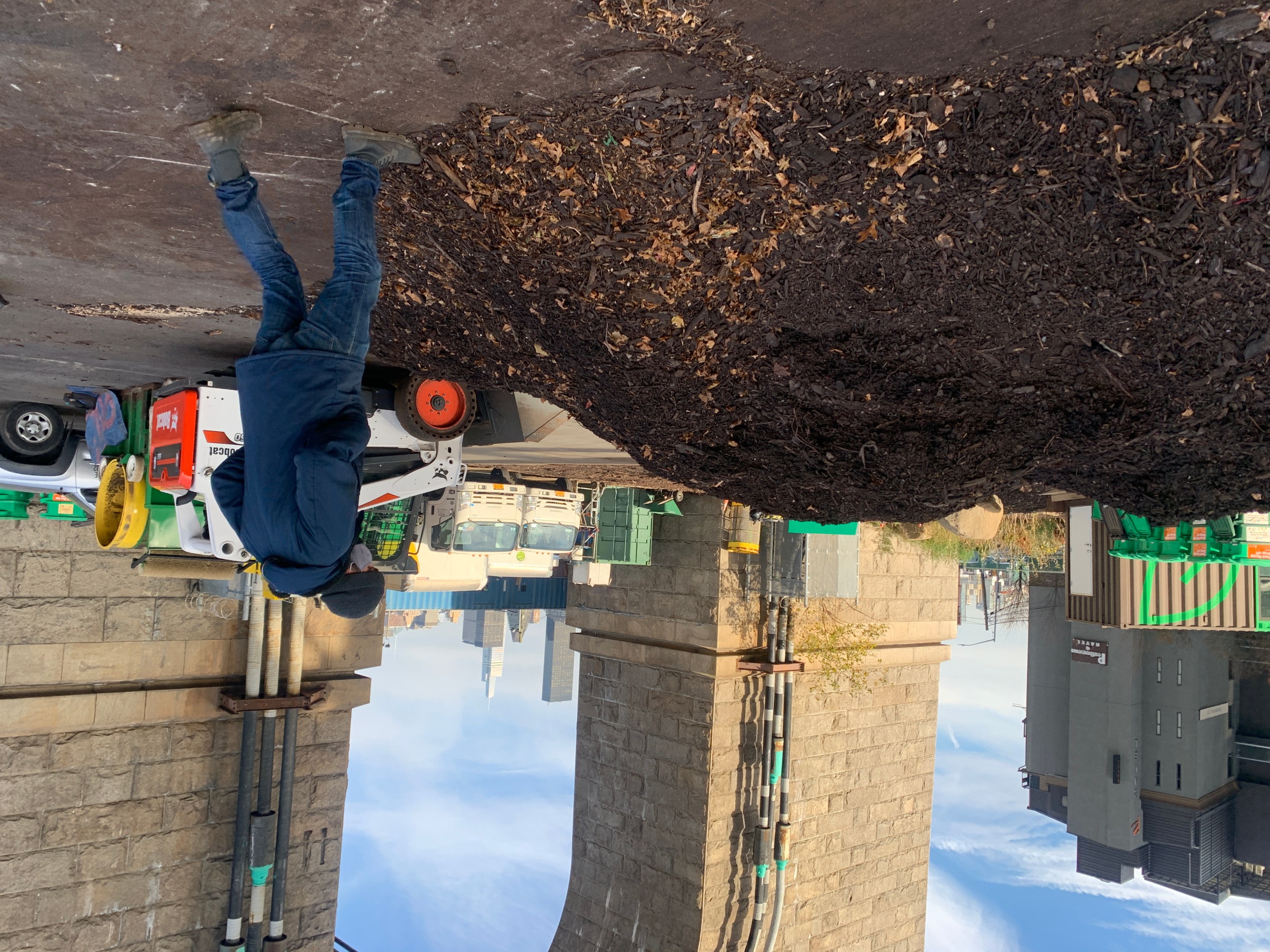It's a dirty job, but this mayor is going to have to do it.
One day after Mayor Adams revealed a budget proposal that gutted the city's fairly small residential composing program, State Sen. Brad Hoylman introduced a bill that would require the city to collect organic materials from every single residential address in town — a mandated expansion of a program that currently allows residential landlords to opt-out.
The bill, S8374, would counter Adams's decision to cut the composting program budget by nearly $91 million over the next five years, money that would have allowed the program to expand beyond the optional pickups in seven community boards — a program that only reaches 10,834 addresses, according to the Department of Sanitation. The budget savings amount to an estimated 0.02 percent of the budget over the next five years.
Meanwhile, Hoylman said, landfilled city trash generates about 1 million tons of greenhouse gas emissions each year.
“New York needs to make landscapes, not landfills," Hoylman said in a statement. "Right now, we’re letting all this waste go to waste, instead of composting it. It’s sitting in landfills, where the organic waste produces methane, one of the worst greenhouse gasses."
Hoylman's office said the senator was working on the bill for weeks, but decided to toss it into the Senate hopper on Thursday after Adams released his budget. Previously, the city had committed to reducing waste by 90 percent by 2030, a goal it can't reach without massive increases in composting because food waste and other organic materials comprise more than 30 percent of the residential waste stream. The bill would allow the city to tap into state funds to support "waste reduction projects."
Adams was not asked about the Hoylman bill when he met the press on Thursday, but when he was asked to explain the cut in composting, he echoed (but miscast) an earlier assessment of the Independent Budget Office that the current system was inefficient.
“We won’t use taxpayers' money just to do a symbolic program,” said Adams, suggesting that there's an irony in collecting compostable garbage in "diesel trucks [when] a minimum amount of people are actually participating in [the program].”
In other words, composing in New York City is too small to save. (The Department of Sanitation only has one electric garbage truck, though seven are on order.)
Update: For the record, the IBO pushed back on the manner in which Adams characterized the program.
"IBO’s study of the city’s organics program found it was inefficient, but much of the inefficiency is caused by low participation rates," agency spokeswoman Elizabeth Brown told Streetsblog on Friday. "We found that the quickest route to improving the fiscal viability of organics — and reaping further environmental benefits — would be to first increase participation and then focus on reducing processing costs once a critical mass of material is collected."
"I just don't see how you use diesel trucks to move around the city and pick up those recyclable food products that a minimum amount of people are actually participating in" - @nycmayor on his decision to suspend the expansion of composting, in contrast to his campaign pledge
— Dana Rubinstein (@danarubinstein) February 17, 2022
The mayor's comments drew opposition from the Council's Sanitation Committee Chairwoman Sandy Nurse (D-Brooklyn).
"The consequences of not equitably expanding the organics program are more rats ripping open our trash bags and thus more litter on our streets," said Nurse. "It will contribute to an overall lower quality of life for our city's most disadvantaged communities. ... We are out of time and must immediately accelerate the work of achieving the city's environmental justice, waste equity and Zero Waste goals."
Eric Goldstein, head of the New York City chapter of the Natural Resources Defense Council told Gothamist that composting “shouldn’t be treated like the after-school clarinet program."
“They should be a fundamental piece of the sanitation department’s budget, just like regular trash pick-ups and snow removal,” he said.
City Hall declined to comment on the Hoylman bill when asked by Streetsblog.
Meredith Danberg-Ficarelli, executive director of Common Ground Compost, suggested in a statement that by cutting the budget, the Adams administration had missed an opportunity to expand public understanding of composting.
“Educating the public about these benefits will play a crucial role in fostering participation, as will equal access to services regardless of ZIP code," she said in a statement supporting Hoylman's bill.
The anger over the Adams budget cut is understandable given that as a candidate, Adams had said he wanted to expand the program.
By the way! We asked all the mayoral candidates about the city’s composting program as part of the Meet Your Mayor project. @NYCMayor choose the option that organics recycling should be expanded to all New Yorkers and made mandatory. pic.twitter.com/QyeMe0hWsZ
— Samantha Maldonado (@sssmaldo) February 17, 2022
And in his "Greener City" campaign document [PDF], Adams said, "The city cut its organics collection program as part of its deficit reduction measures for the current fiscal year. That was a mistake."
An ongoing one, apparently.






